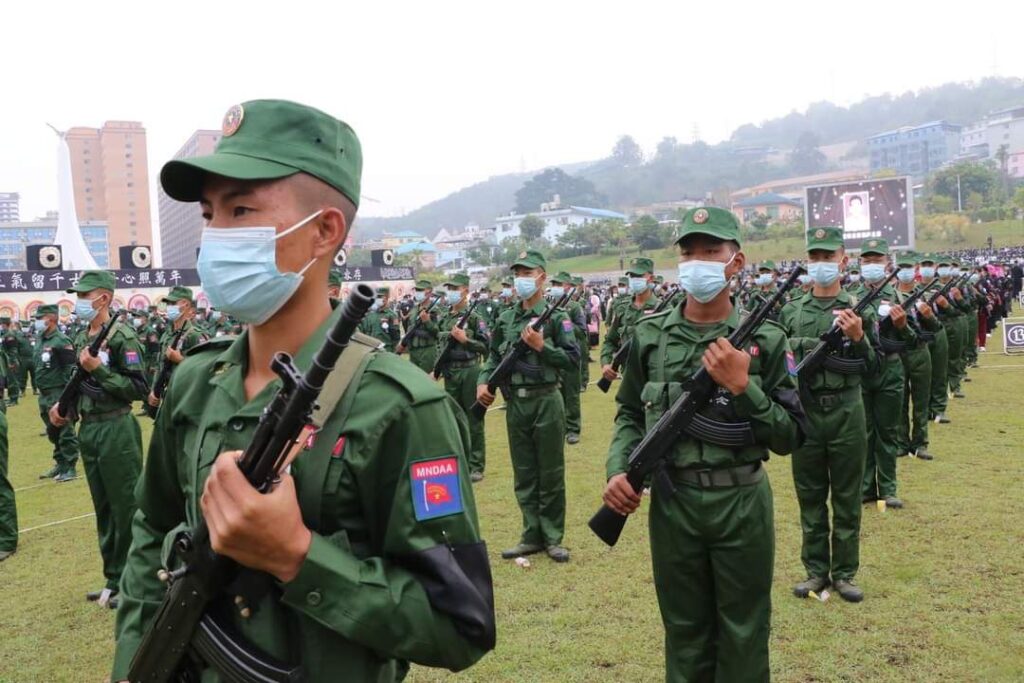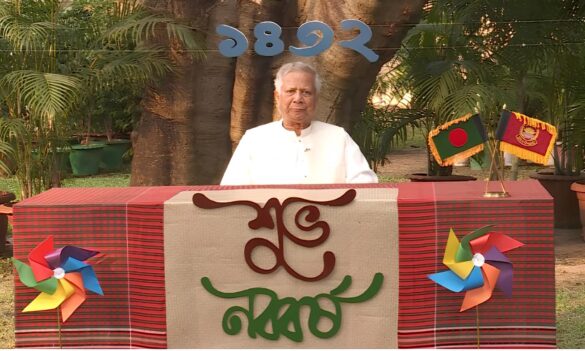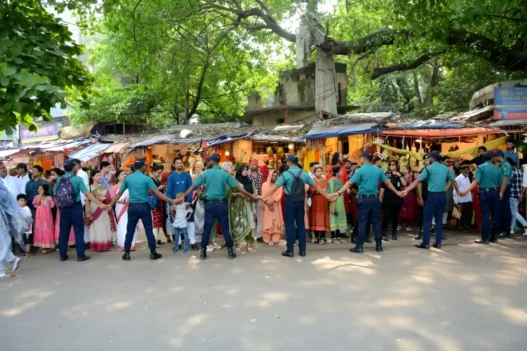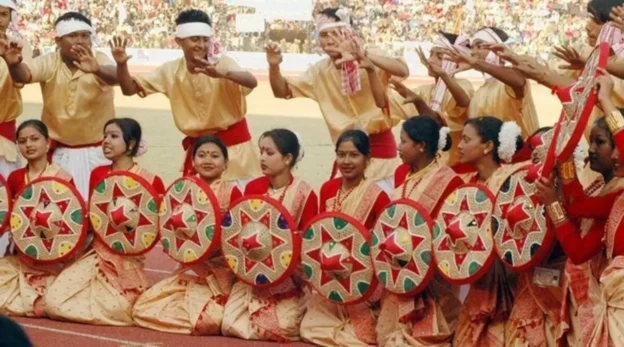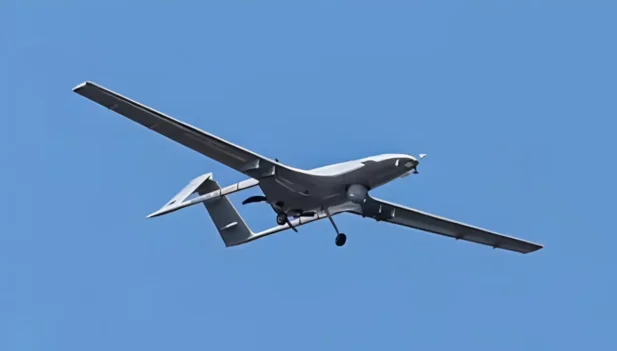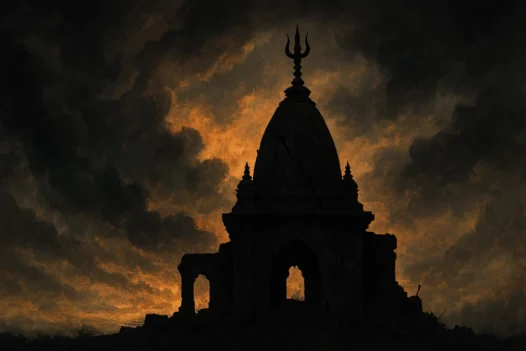Myanmar’s military junta, headed by Min Aung Hlaing, is facing escalating challenges as it tries to assert control over the country. Recently named president, Min Aung Hlaing’s appointment follows a series of significant setbacks inflicted by various rebel groups and the People’s Defence Force (PDF). These developments underscore the junta’s declining grip on power amidst intensifying internal and external pressures.
Intensifying rebel attacks and rising desertions
The junta’s forces have been under relentless assault, particularly in northern Shan and Rakhine states, resulting in severe losses. According to a DVB report the Myanmar National Democratic Alliance Army (MNDAA) reported that over 300 military personnel, including a lieutenant colonel and several majors, surrendered in Lashio, North Shan state. The DVB report, further stated that these defectors vowed to turn their weapons against the regime, with the MNDAA providing assurances of safety and medical treatment.
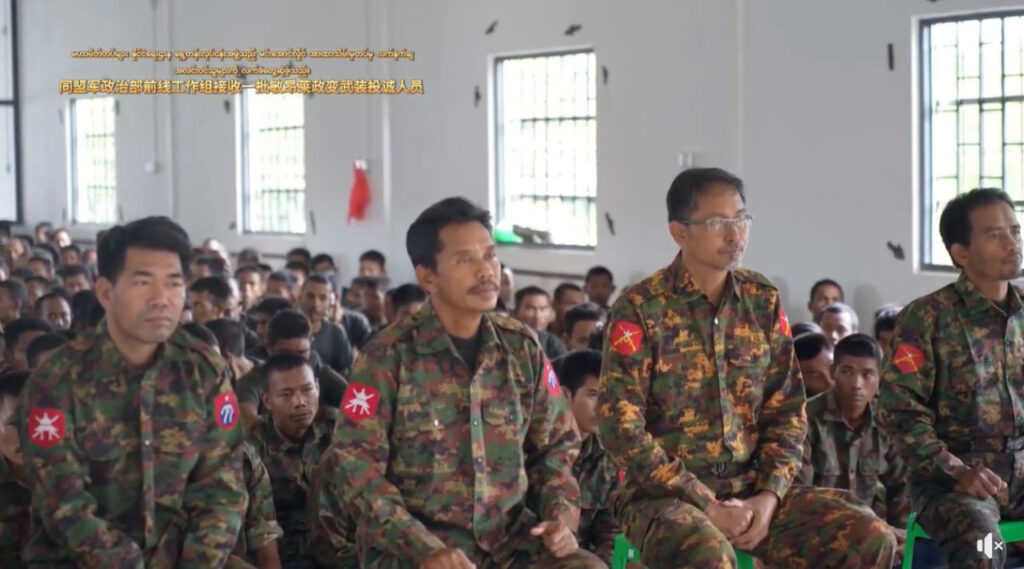
To further encourage defections, the MNDAA announced cash rewards ranging from one million to one billion kyat, depending on the rank and weapon turned over. Desertions within the junta’s ranks have surged, with numbers now in the hundreds, reflecting the military’s deteriorating morale and cohesion. According to senior local journalist based in Yangon informers and defectors, colloquially known as “watermelons” for their green military exterior and red pro-democracy sympathies, have compounded the junta’s difficulties .
In response to the dwindling numbers, the junta’s attempts to enforce a draft by implementing the People’s Military Service Law, originally enacted in 2010 too have not made yielded the kind of result it was hoping for. On February 10, Min Aung Hlaing had announced the law’s immediate enforcement, leading to a series of local meetings to select conscripts through lottery draws However, this conscription drive has faced significant resistance, with many youths opting to go into hiding to avoid forced enlistment. “Many prefer to join the PDF and other resistance groups, highlighting the widespread discontent with the junta,” said a local Burmese civil society worker based in Kayin state .
Diplomatic efforts and election plans
Amid these internal challenges, the junta is also seeking to placate neighbouring countries and international bodies by proposing elections to restore a semblance of normalcy. The Permanent Secretary of the Ministry of Foreign Affairs, Aung Kyaw Moe, is attending the 57th ASEAN Foreign Ministers’ Meeting in Vientiane, Laos, carrying messages intended to further the junta’s proposed election plans. Under the military’s 2008 constitution, elections must be held within six months of lifting the state of emergency.
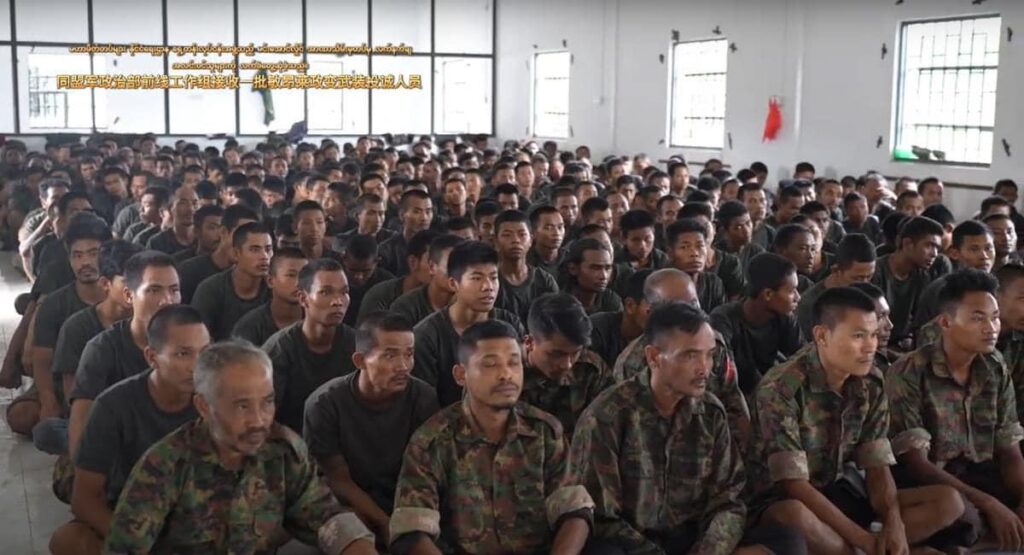
Min Aung Hlaing has pledged to hold elections in 2025, forming a committee to gain support from groups willing to engage in dialogue with the military leadership. The junta’s diplomatic efforts are seen as attempts to secure legitimacy and stabilize the situation internally and externally. However, these efforts come against the backdrop of ongoing violence and instability, raising questions about the feasibility and integrity of any proposed elections.
The situation remains volatile, with the junta facing simultaneous military, political, and diplomatic challenges. The recent advances by rebel groups, such as the Karen National Union (KNU) in Myawaddy, have further demonstrated the junta’s inability to maintain control over key regions. International observers and local civil society groups continue to monitor the situation closely, expressing concerns over the junta’s increasing desperation and the potential for further escalation of the present conflict.

